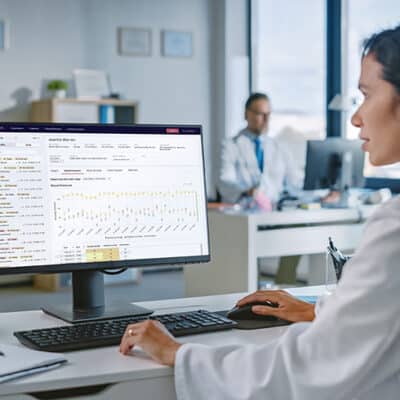After careful consideration, you may have decided that your healthcare organization or medical practice is ready to embrace a remote care program. But with so many options available, how do you know which program or partner is right for you and your patients?
If that’s the case, keep reading. Below, we have included the top 15 questions you should consider before launching your initiative.
Remote Care Programs
The first question to ask may be the biggest:
- Which remote care programs will you consider?
Remote care programs such as Chronic Care Management (CCM), Principal Care Management (PCM), Remote Patient Monitoring (RPM), and Remote Therapeutic Monitoring (RTM) offer great promise for improving outcomes, lowering care costs, and benefiting patients.
While each of these programs contribute to improved patient care, they all exhibit fundamental differences from diagnostic criteria and billing practices to clinical care team requirements. Understanding the key differences between remote care programs can help you determine which program best suits your needs. Moreover, success hinges on selecting the right partner to help deliver these services to your patients.
Patient Population and Health Conditions
Understanding the characteristics of your target patient population and the health conditions that will be monitored is essential for designing a program that aligns with specific healthcare goals. A couple of questions to consider:
- What is the patient population you plan to focus on for the program?
- What specific health condition(s) or parameters will be monitored?
Clinical Workflow Integration
A seamless integration into your current clinical workflows is key to ensuring that your remote care program becomes a valuable and efficient tool. Three questions to help uncover what this might look like include:
- How will the remote care program integrate with existing clinical workflows?
- What training and support will be provided to providers and staff for effective use?
- Are there potential challenges with integration into the existing electronic health records (EHR)?
Patient Engagement
Patient engagement is critical for the success of any remote care program. Strategies to help educate and motivate patients should be integral to the program’s design. Certain programs offer AI assistance to help increase patient compliance and engagement with the program. You may also consider asking the following:
- How will the program encourage active patient participation in the program?
- What educational resources and support will be provided to enhance patient adherence and compliance?
Scalability and Flexibility
Ensuring scalability and flexibility is crucial to meeting healthcare’s evolving demands and ensuring your program’s growth. You must think long-term and ensure that the program you choose is scalable and flexible to fit your changing needs. Some questions might include:
- How scalable is the program to accommodate increases in patient enrollment?
- Can the program adapt to emerging technologies and evolving healthcare needs?
Patient Privacy and Consent
Adhering to regulatory guidelines and protecting patient privacy is necessary to maintaining patient trust and the integrity of your remote care program. Consider asking:
- How will the program obtain and manage patient consent?
- How will patient data be handled to comply with privacy and security regulations?
Regulatory Reimbursement and Billing
Understanding the regulatory landscape for reimbursement is essential to ensuring the financial sustainability of your remote care program. This will incentivize healthcare providers to adopt and sustain it. A few questions to consider:
- What is the initial investment required to launch and maintain this program?
- How will the program navigate reimbursement and billing processes?
- How will the program generate value?
Launching a remote care program can help enhance patient care, improve health outcomes, and optimize efficiency and healthcare resource utilization. However, addressing these questions is essential to mitigating risks, ensuring compliance, and designing a program that effectively meets your needs and the needs of your patients. By carefully considering these factors, healthcare organizations and practices can pave the way for a successful remote care program.
Start The Path Toward Better Patient Care
Have questions about how remote patient monitoring for healthcare will work for you and your patients? Let’s have a conversation.
Access the Latest RPM News
Stay up to date with the latest news, articles and webinars about remote patient monitoring and telehealth.
"*" indicates required fields



